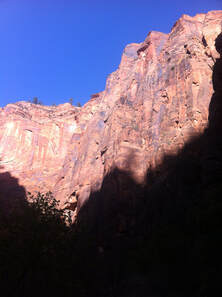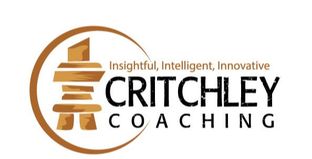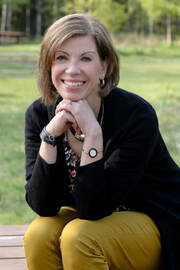
On Monday evening, we watched the first hour of the three parts of the movie. I have to admit, I found it very difficult to watch human beings treat one another in the way shown in the movie. I have no doubt the behaviour is correctly portrayed. This book centres on the slave trade in the 1800’s, and focuses on the life of a girl, Aminata Diallo, who in the first episode, at age 11, was taken from her West African village and sold into slavery, eventually ending up in South Carolina, USA. Since I found myself looking away from the screen occasionally as we watched, I decided to get down on the floor and do my daily stretches that had not found themselves in the early part of the day. So, part of the time I was watching and part of the time I was listening.
There was one line, spoken by Aminata, that caught my attention. She was shackled on board a ship with others in her same situation and she struck up a sort of friendship with a young boy on the boat. As they sat together, she asked him, “How are you known?”
How are you known?
I assume if this movie were set in 2020, the question might have been, ‘What’s your name?’ But ‘How are you known?’ asks so much more, and is such a wonderful question.
I began to think about how I might answer this question if it were asked of me. How am I known? I can answer this of course, with some obvious, honest facts. I am known to be a teacher. I am known to be a mother. I am known to be a wife. I am known to be a runner and a biker. These are kind of the nuts and bolts answers. They could describe many, many people. There is nothing about any of these that really tells anyone much about me.
Then I thought I might answer the question with traits, instead of job descriptions. I could say I am known to be organized, to be honest, to be disciplined, to be kind, and sometimes to be funny. Even as I list these, I recognize these would never give a stranger a clear picture of me.
What is it to be known then? When others truly know us, they know some of what lies deep inside us. They know some of our hidden dreams, our insecurities, our history, and our longings. The more I have thought about this, the more I have come to understand that worse than having a boring answer to ‘How are you known?’ is to get to a place in life and wonder, ‘How am I not known?’ In other words, what unfulfilled dreams do I have? What unfulfilled longings have I left untouched? What do I wish I had tried?
Hollywood lost a legend this past week. Regis Philbin, long-time host of Live with Regis and Kathy Lee, Live with Regis and Kelly, and then host of Millionaire, died at 88. In a 20/20 episode documenting his life, he described that a big regret he had was not hitting his real stride until quite late in his life. In the documentary, he returned to his high school, where an auditorium had been named in his honour. He surprised me when he said that during his high school years, he had never participated in any of the performances that went on in that space. He wanted to, he dreamed of it, he could imagine it, but he was afraid. He was afraid he might disappoint his parents who did not hold acting as a dream for their son. He was afraid he might fail. He was afraid to show his true self.
This week I’ve been thinking a lot about how I want to be known. I’m not finished my thinking. What I do know is it is always a risk to reveal parts of ourselves to others. I also know that living ‘safely’, not rocking the boat, not showing up in a new way, not growing, will not serve me well, and will not make me proud of myself at the end of my life. I think Regis Philbin came into his own at the very moment he became brave enough to fully reveal himself; when he allowed others to know him.
I hope the fictional boy on the boat in The Book of Negroes, also figures out how he wants to be known. I am guessing, based on her strong character, the eleven-year-old girl, Aminata, will eventually leave no doubt about how she will be known.
My inquiry for you this week is, ‘How am I known?’
Elizabeth is a certified professional Leadership Coach, and the owner of Critchley Coaching. She is the founder and president of the Canadian charity, RDL Building Hope Society. She works with corporations, non-profits and the public sector, providing leadership coaching. She creates and facilitates custom workshops for all sizes of groups. She has particular expertise in facilitating Strategic Plans for organizations. Contact Elizabeth to learn how to make yourself, and your organization, known.


 RSS Feed
RSS Feed